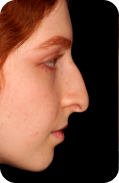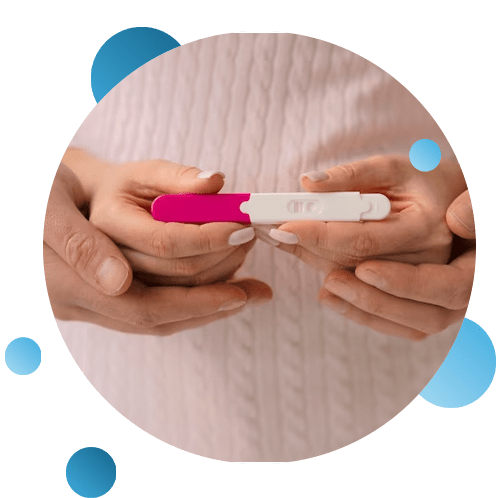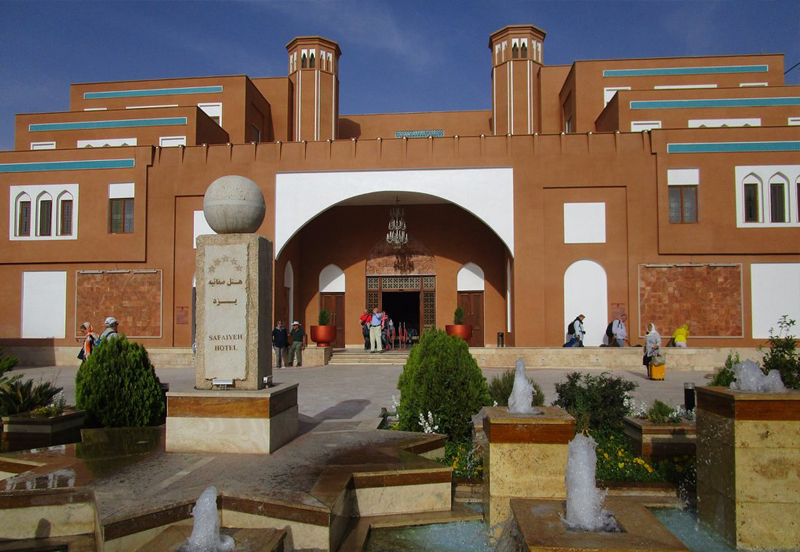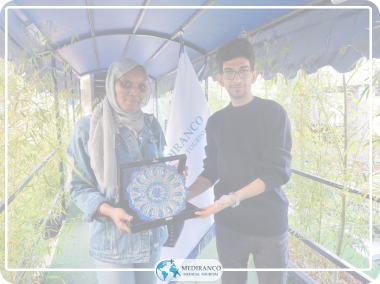Infertility treatments in Iran
Infertility treatments in Iran – Infertility has become one of the most problematic issues that couples may confront. Big lives are reliant on children, having them is crucial to stabilize the family and increase its intimacy, this factor has made infertility a threat to marriages
We help you to double your beauty! Get in touch with our consultants…


Stay in Iran
7 days
Recovery time
12-14 days
Clinic Stay
1 day
Stay in Iran
7 days
Recovery time
12-14 days
Clinic Stay
1 day
- Packeges
- Videos
- B & A Photos
- Surgeon
- Hotels
- FAQs
Infertility treatments cost in Iran
The cost of infertility treatments can vary depending on the chosen method and additional options. For instance, the widely used IVF procedure in Iran typically ranges from 1,200€ to 2,500€. Several factors influence this cost, such as the doctor’s fees, the fertility clinic’s facilities and location, expenses for fertility medications, laboratory tests, the number of ultrasounds, consultation charges, and decisions regarding donor sperm or eggs, among others. Accurate cost evaluation should follow the diagnosis of the underlying problem.
To obtain up-to-date information on infertility treatment prices in Iran for 2022, you can consult Mediranco’s financial team, ensuring you have a clear understanding of the expenses associated with your specific situation.
Infertility treatments Packeges in Iran
Premium
3,340$
- Treatment visa
- Airport pickup
- Transportation
- All medications
- Medical interpreter
- Simcard with internet
- Medical Photography
- 24/7 on phone Translator
- 5 Stars Hotel
Basic
3,150$
- Treatment visa
- Airport pickup
- Transportation
- All medications
- Medical interpreter
- Simcard with internet
- Medical Photography
- 24/7 on phone Translator
- 4 Stars Hotel
Basic
3,150$
- Treatment visa
- Airport pickup
- Transportation
- All medications
- Medical interpreter
- Simcard with internet
- Medical Photography
- 24/7 on phone Translator
- 4 Stars Hotel
Premium
3,340$
- Treatment visa
- Airport pickup
- Transportation
- All medications
- Medical interpreter
- Simcard with internet
- Medical Photography
- 24/7 on phone Translator
- 5 Stars Hotel
About Infertility treatments in Iran
Infertility treatments in Iran – Infertility has become one of the most problematic issues that couples may confront. Big lives are reliant on children, having them is crucial to stabilize the family and increase its intimacy, this factor has made infertility a threat to marriages. Every day lots of marriages get ruined because of either the wife or husband’s infertility. We are here to tell you the good news that at this age there is no worry about infertility, with modern medications and treatments it would be easily cured.Infertility is a worldwide phenomenon, the couple’s infertility rate is around 10-20 percent worldwide, and any couple who is without no pregnancy while not using any contraception for over a year is considered to be infertile.
Romanian girl choosing Iran for a perfect Infertility treatments result
Others Video
Australian girl getting a Infertility treatments in Iran thinks it’s way better than you think
Australian girl getting a Infertility treatments in Iran thinks it’s way better than you think
Australian girl getting a Infertility treatments in Iran thinks it’s way better than you think
Australian girl getting a Infertility treatments in Iran thinks it’s way better than you think
Infertility treatments in Iran before and after
Before
after




Before
after




Before
after




Before
after




What Our Customer Say
Lydia
GB

I had a guide called sara who was absolutely amazing. She was so caring and kind and made sure I was comfortable and safe throughout my trip. I really recommend any one using mediran to book with sara
Lydia
GB

I had a guide called sara who was absolutely amazing. She was so caring and kind and made sure I was comfortable and safe throughout my trip. I really recommend any one using mediran to book with sara
Lydia
GB

I had a guide called sara who was absolutely amazing. She was so caring and kind and made sure I was comfortable and safe throughout my trip. I really recommend any one using mediran to book with sara
Lydia
GB

I had a guide called sara who was absolutely amazing. She was so caring and kind and made sure I was comfortable and safe throughout my trip. I really recommend any one using mediran to book with sara
Now, let’s have a look at the photos of our patients in Iran!







Dr kasra sabeti
+2000
Successful Surgeries
12
Years of Experience
Successful Surgeries
+5

Dr kasra sabeti
+2000
Successful Surgeries
12
Years of Experience
Successful Surgeries
+5

Dr kasra sabeti
+2000
Successful Surgeries
12
Years of Experience
Successful Surgeries
+5

Dr kasra sabeti
+2000
Successful Surgeries
12
Years of Experience
Successful Surgeries
+5
Best Infertility treatments Surgeon Iran
Why choose Iran for infertility treatment?

In the infertility field, Iran has the greatest successful results, and annually a lot of couples are having their own child by innovative methods. Iran’s most important benefit is its skilled infertility specialists and subspecialists as well as providing treatment offers with the highest quality and lower costs in comparison with regional rivals. If you search the medical articles you may see that a lot of these articles are worked on in Iran. You may experience the fastest diagnosis process and then treatment options following it. Mediranco is one of the medical tourism centers in Iran that provides you with unbelievable offers. You can have a consultation with an infertility Expert and get information about different methods of infertility treatment. Mediranco works with the best medical centers and has achieved brilliant results for years. You can compare options and services we have provided for you with affordable prices and then make decisions. In Mediranco it is our motto to make today’s couples, happy parents in the future. Trust us you will not be regretful.
Hotels

Parsian Azadi Hotel
Tehran – Chamran Highway – Yadegar-e-Emam Intersection – Parsian Azadi Hotel

karim khan Hotel
Shiraz – Twenty meters from Saadi Cinema – Zarr Commercial Complex – Unit 202

Parsian Safaiyeh Hotel
Yazd – Safaiyeh – Abozar Square – Timsar Fallahi St – Emem Hossein Square
How to Recover From Infertility treatments?
- Take time off work
Most patients take 7-10 days off work to recover from a Infertility treatments procedure. You will likely feel some discomfort and swelling during this time, so it is important to take it easy and rest.

- Follow your surgeon’s instructions
Guidance from your plastic surgeon is key post Infertility treatments . Adhere to their instructions meticulously for effective care. Your surgeon will provide details on cleaning the area, managing swelling and pain, and scheduling follow-up appointments. Keep your head elevated during the initial days to reduce swelling, and your surgeon might recommend a nose splint or cast for protection. Additionally, pay attention to your diet—following your surgeon’s advice on nutrition and fluid intake contributes to a smooth recovery. Trust the process and ensure the best outcomes by following your surgeon’s personalized care plan.

- Avoid strenuous activities:
You should avoid strenuous activities such as exercise, heavy lifting, and bending over for at least two weeks after the procedure. This will help to minimize swelling and prevent any damage to the delicate tissues in your nose.

- Take your medications as directed
If prescribed pain medication, take it as directed to alleviate any post-procedure discomfort. Also, to ensure the best results and prevent infections, diligently take the prescribed antibiotics. Timely and consistent medication intake is crucial, so stay on schedule and trust your surgeon’s advice for a smooth and successful recovery.

- Use cold compresses
Applying cold compresses to your nose can help to reduce swelling and discomfort. Be sure to follow your surgeon’s instructions on how often to use cold compresses and how long to apply them for.

- Attend follow-up appointments
Applying cold compresses to your nose can help to reduce swelling and discomfort. Be sure to follow your surgeon’s instructions on how often to use cold compresses and how long to apply them for.

- Avoid alcohol and smoking
Applying cold compresses to your nose can help to reduce swelling and discomfort. Be sure to follow your surgeon’s instructions on how often to use cold compresses and how long to apply them for.

Examination process
First, the doctor would ask you for your medical history and physical condition, there would be also questions about your sexual history. These files are essential for the doctor to determine whether you are infertile or not.
For men, a physical exam and sperm analysis are taken to assess sperm productivity. Women are also first examined with their physical condition, the doctor would then make sure that they are ovulating and that their ovaries are releasing eggs, an ultrasound or X-ray device is used in this procedure. A blood test is also taken from you to evaluate your hormone level.
Ovulation problems can be caused by various reasons like:
- Polycystic ovary syndrome (PCOS)
- Thyroid problems: both types of thyroid problems including an overactive thyroid gland and an underactive thyroid gland can affect the ovulation process
- Premature ovarian failure: where the ovaries stop working before the age of 40
- Scarring from surgery
- Pelvic surgery: any kind of surgery in the pelvic area can damage and scar the fallopian tubes(tiny tubes which link the ovaries to the womb)
- Cervical surgery: cervix surgeries are able to cause scarring or shorten the cervix (the neck of the womb).
- Medicines and drugs: various types of medications can cause problems in ovulation normal process as the side effects like non-steroidal anti-inflammatory drugs (NSAIDs)neuroleptic medicines, chemotherapy, spironolactone and …
- Pelvic inflammatory disease: any type of infection of the upper female genital tract( including the womb, fallopian tubes, and ovaries). These infections are often caused by sexually transmitted infections known as STIs.
- Sterilisation: this phrase involves blocking the fallopian tubes to make it impossible for an ovule to travel to the womb so you won’t have any children. It’s barely reversible. In women who have had sterilisation reversed, they will not necessarily be able to have a child.
- Endometriosis: is a condition where small pieces of the womb lining tissue which is called endometrium start growing in other places, especially in the ovaries. This unusual growth can damage the ovaries or fallopian tubes and cause fertility issues.
- Fibroids: Non-cancerous growths of womb cells are known as fibroids. In some cases, they may prevent a fertilized ovule from attaching itself to the womb’s tissue or they may block a fallopian tube.


Some other reasons which are related to the male sex are:
- Semen and sperm problems: The most common cause of infertility in male sex is poor-quality semen (the semen is the fluid that contains sperm and is ejaculated during sex). There are different reasons for abnormal semen, A lack of sperm, Sperm that are not moving properly, Abnormal sperm.
- Testicles: The testicles are specialized organs that produce and store sperms. If testicles are damaged, it can seriously affect the quality of the semen. The damage can happen as a result of various reasons like An infection of the testicles, Testicular cancer, Testicular surgeries, congenital defects, undescended testicles, or any type of injuries to the testicles.
- Sterilisation: Some men choose to have a vasectomy in order to prevent having children. Vasectomy involves cutting and sealing off the tiny tubes that carry sperm out of the testicles called the vas deferens. So the semen will no longer contain any sperm.
- Ejaculation disorders: A common issue that men can experience is ejaculation problems that can make it very difficult for them to release semen during sex.
- Hypogonadism: Hypogonadism is an abnormally low level of testosterone (the male sex hormone which causes sperm-producing). Hypogonadism can be caused by a tumor, taking illegal medications, or Klinefelter syndrome.
- Medicines and drugs: various types of medicines can sometimes cause infertility problems like herbal remedies, sulfasalazine, anabolic steroids, and …
There are different solutions to this reproductive defect, it could differ in men and women.
Treating male infertility methods
Surgery:
If you are diagnosed with varicocele (Enlargement of scrotum veins), surgery could help you by sealing off the scrotum veins and directing the blood into your normal veins.
Antibiotics:
In order to cure infections existent in your reproductive organs, this method will be effective.
Hormone Treatment:
If the low or high level of specific hormones has made you infertile, this treatment would be the best for you.
In women also, there are some almost identical steps to treat infertility:
Surgery:
To obviate the blockage problems (such as endometriosis) that emerged in areas like the fallopian tube.
Fertility Drugs:
These prescribed drugs would help you restore your normal hormone level and ovulate.


Infertility could also be cured with the help of new reproductive assist technology called ART. There are several kinds of ART:
IUI (intrauterine insemination):
Sperm is taken and is then posed directly in the woman’s uterus when it is releasing eggs.
IVF (in vitro fertilization):
Sperms and eggs are grown in the laboratory for 3-5 days, after that, the embryo will be placed in the woman’s uterus.
GIFT (gamete intrafallopian transfer) and ZIFT (zygote intrafallopian transfer): In GIFT Sperm and egg are collected in the fallopian tube, in ZIFT, the egg after fertilization is put into the tube for 24 hours.
Many types of treatments such as Ovulation Induction, IVF, IVM, IMSI, ICSI, IUI, PGD, assisted hatching, reproductive surgery, and surrogacy are available in Iran.
What is usually the first infertility treatment?
The first treatment is mostly utilizing medications (it depends on your infertility problem). Clomid (clomiphene citrate) which is known as a fertility drug, is frequently the first drug diagnosed in treatment. Primarily, it’s utilized almost for situations in which the female sex has infertility problems, but it can be used to treat male infertility as well.
What is the best treatment for infertility?
It’s better not to ask this question because there is no the same treatment for all infertility problems. The best treatment is based on your condition. Based on the reason for your infertility, the doctor suggests various treatments like Assisted conception Intrauterine insemination IUI (which is known as artificial insemination and involves inserting sperm into the womb via a thin plastic tube passed through the cervix), In vitro fertilization IVF (The IVF involves monitoring and stimulating a woman’s ovulatory process, removing an ovum from the ovaries and letting sperm fertilize it in a culture medium in a laboratory and then inject it to the uterus). Ovule and sperm donation and … Each of these methods is used in special problems and it’s not the same for different patients.
What is the main cause of infertility in females?
The leading cause of female infertility is the failure to ovulate, about 40% of women have involved with infertility issues. Not ovulating can be caused by several causes, like Ovarian or gynecological problems, such as primary ovarian insufficiency (POI) or polycystic ovary syndrome (PCOS).
What is the main cause of infertility in males?
The main reason for male infertility is sperm issues. Sperm issues like low sperm production, abnormal sperm function, or blockages that prevent the delivery of sperm. Illnesses, injuries, chronic health problems, lifestyle choices, and many other factors may contribute to male infertility.





